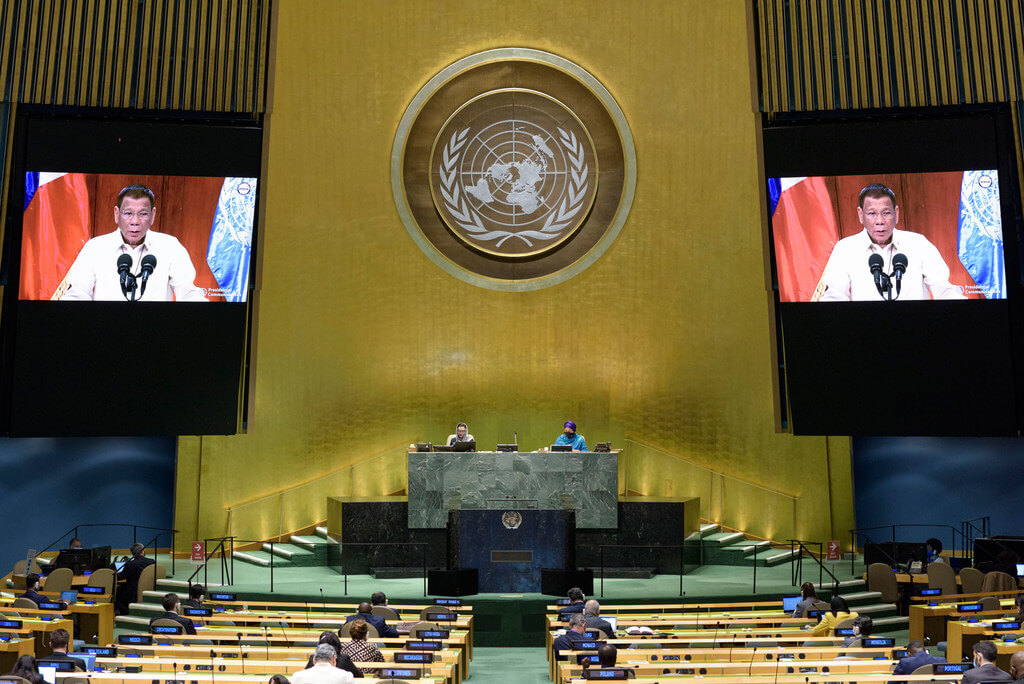Filipino President Rodrigo Duterte on Tuesday criticized China’s actions in the South China Sea (SCS), arguing that they breached international law. During his first address to the United Nations General Assembly (UNGA) since his inauguration, Duterte expressed his strong support for the 2016 decision by the Permanent Court of Arbitration (PCA), which was in favour of the Philippines in a case against China over the latter’s maritime claims in the disputed waters.
The tribunal had ruled in favour of Manila’s queries: that China’s nine-dash line claim and accompanying claims to historic rights had no validity under international law; that no feature in the Spratly Islands, including Taiwan-occupied Itu Aba (or Taiping Island), is an island under the United Nations Convention on the Law of the Sea (UNCLOS); and that the behaviour of Chinese ships physically obstructing Philippine vessels is unlawful.
Duterte told the gathering that the decision was now “part of international law” and could not be diluted or abandoned, further adding that the Philippines firmly rejects any attempts to undermine it. He also thanked other nations who supported the PCA ruling, saying that it signalled the “triumph of reason over rashness, of law over disorder, of amity over ambition”.
Duterte’s remarks are in stark contrast to his government’s previous resistance to employing harsh rhetoric against Chinese expansionism in the Indo-Pacific. This has been largely due to the risk of military confrontation with Beijing, which Duterte has stressed the Philippines just cannot afford. Manila has also sought to take a more measured approach to Beijing in order to gain access to COVID-19 vaccines.
Experts have argued that the leader’s approach to embracing closer ties with China and separation from the United States (US), the country’s biggest military ally, seems to be a somewhat of a reversal due to increased the global criticism of Beijing. The Philippines’ military has also emphasized the importance of the country’s defence ties with the US to secure its national interests and ensure balance of power in Asia.
In this regard, the Philippines in June suspended its decision to end a 22-year old agreement that facilitates joint military exercises with the US while ramping up its criticism of China’s moves in the SCS. Earlier this month, Duterte also pardoned a US Marine who in 2015 brutally murdered a transgender Filipina. The country’s officials have stressed that the government’s actions had nothing to do with siding with either the US or China, but rather were reflective of the Philippines’ “independent foreign policy”.
UNGA: Duterte Takes Strong Stance Against Chinese Expansionism in South China Sea
Duterte expressed support for the 2016 decision by the Permanent Court of Arbitration, which went in favor of the Philippines in a case against China over the latter’s maritime claims in the SCS.
September 23, 2020

SOURCE: UN NEWS
